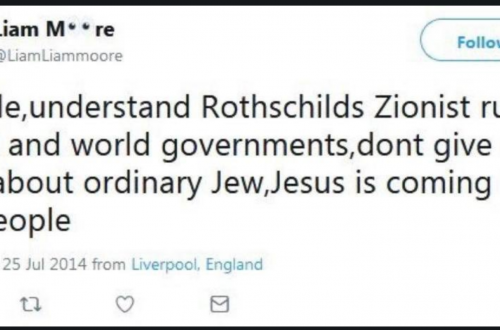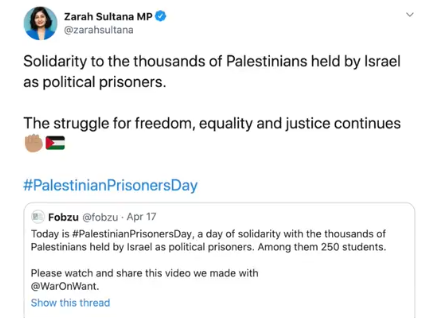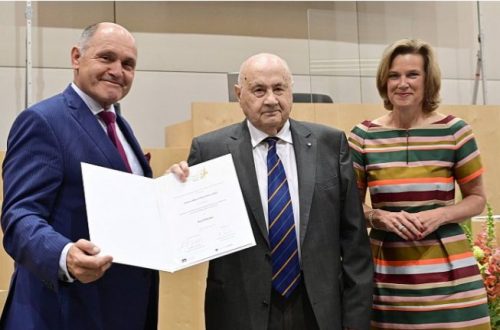This is a cross post by Dr Andre Oboler of his guest post at the Jerusalem Post’s Blog. It was first posted yesterday.
Late last year reports surfaced in the media that Maxim Genis , an Israeli Jew born in Ukrainian, had cancelled the release of a computer game he spent four years building after pressure from the US based Anti-Defamation League (ADL) and others.
The game, a first person shooter, put the player in the role of a member of the Sonderkommando, a member of the “special unit” (almost entirely Jewish) who worked in the crematoriums and were tasked with disposing of the bodies of those gasses by the Nazis. The first task of any new Sonderkommando unit was disposing of their predecessors, and 2 to 4 months later the same would usually happen to them. Unlike many Jews murdered in the death camps, the Sonderkommando knew exactly what lay in store for them.
On October 7th, 1944 the Sonderkommando rose up against SS. Filip Muller, a member of the Sonderkommando, described what occurred: “Chaim Neuhof, a Jew from Sosnowice, who had been a member of the Sonderkommando since 1942, approached SS Staff Sergeant Busch and after a brief exchange, yelled the password “Hurrah” and struck the SS man with a hammer.” In the uprising that followed, one of the crematoria was destroyed and a number of SS officers killed. The Sonderkommando involved, the women who supplied them with explosives, and other elements of the resistance within the camps, were all hunted down and shot, hung or gassed. Not all Jews went to the gas like lambs to the slaughter.
The Sonderkommandos are often the subject of contempt. Primo Levi called them “akin to collaborators” for their role in the Nazi killing machine. Other survivors and the Jewish establishment tend to view them negatively as well. They in turn argue they had no choice and were as much victims as any others.
Maxim Genis’s game is built on a game from 19 years ago, Wolfenstein 3D. This was the original first person shooter game, and it too took place against the Nazi. In Wolfenstein 3D the player is an American soldier trying to escape a Nazi stronghold and the aim is to kill as many Nazi as possible on the way out. Genis’s game by contrast is simply about getting out. Where Wolfenstein 3D shows a World War II without mention of the Holocaust, Genis puts the murder of Jews at the center of this story.
In an interview with Kotaku, a video game blog, an ADL spokes person said, “The Holocaust should be off-limits for video games.” They called Genis’s game “horrific and inappropriate” and “an offensive portrayal of the Holocaust”. They described it as a “crude effort to depict Jewish resistance during this painful period which should never be trivialized”. The Simon Wiesenthal Center were also critical, asking, “What happens if this is the only thing a young person gets to know about the Holocaust or a concentration camp?”
The ADL and SWC play valuable roles in Holocaust education, but they don’t have a monopoly on Holocaust remembrance. This game may be a decade too early, distressing to survivors in its glorification of the resistance effort of the Sonderkommando. It may, however, also be 19 years too late. Other aspect of WWII have long been the topic of games and it is through games that many get to know about aspects of history. The Jews have been painted out of this history, forgotten if you will. This gives rise the Rabbi Cooper’s theoretical young person who currently knows nothing. Show we tell them Jews were killed and show them the ovens? Or should eb leave them in blissful ignorance?
Used properly, games are a great way to educate. I doubt a game based on the camps would be popular… Done properly it would be far too distressing. But that doesn’t mean it’s not worth doing? Games educating on the Holocaust (even if that is not their primary purpose) should not be automatically lumped with the neo-Nazi propaganda games the ADL and SWC usually oppose.
Maxim Genis told Heeb Magazine that the media exposure, “just killed me emotionally…I can’t eat, barely sleep, can’t work or function.” He said he put 4 years into the game, including extensive research. Then under pressure he cancelled it. Expert help to make the game truely an asset was available close by at Yad Vashem. The addition of a historical background document on the incident depicted in the game, and links to further information, would truly have made the game an asset. This episode is a loss for Holocaust education, but more significantly, it shows we have the wrong attitude and are asking the wrong questions.
Outside of the Jewish community, education on the Holocaust is poor, often limited to the fact that “many Jews and other people died”. Creating awareness in the wider population of the crematoriums, and the intentional nature of the Nazi murder machine, may be sufficient vindication for Maxim Genis’s game. To answer Rabbi Cooper’s question, if all a player learns is that there were camps and a mass murder of Jews, even that may be an improvement over total ignorance. But it doesn’t need to stop there. A link to more information means many people’s knowledge would not stop there. Given the high level of exposure to Holocaust denial online, any gains we can make are useful.
The real questions are not about games and the Holocaust. They are about historical truth, education, and remembrance. “Games”, like other forms of technology, are no more than a medium. We must use every available medium to spark discussion, educate, and stir a greater interest and understanding of the history of the Holocaust.
Dr Andre Oboler is Director of the Community Internet Engagement Project at the Zionist Federation of Australia. He is a social media expert with a focus on online hate and public diplomacy.


